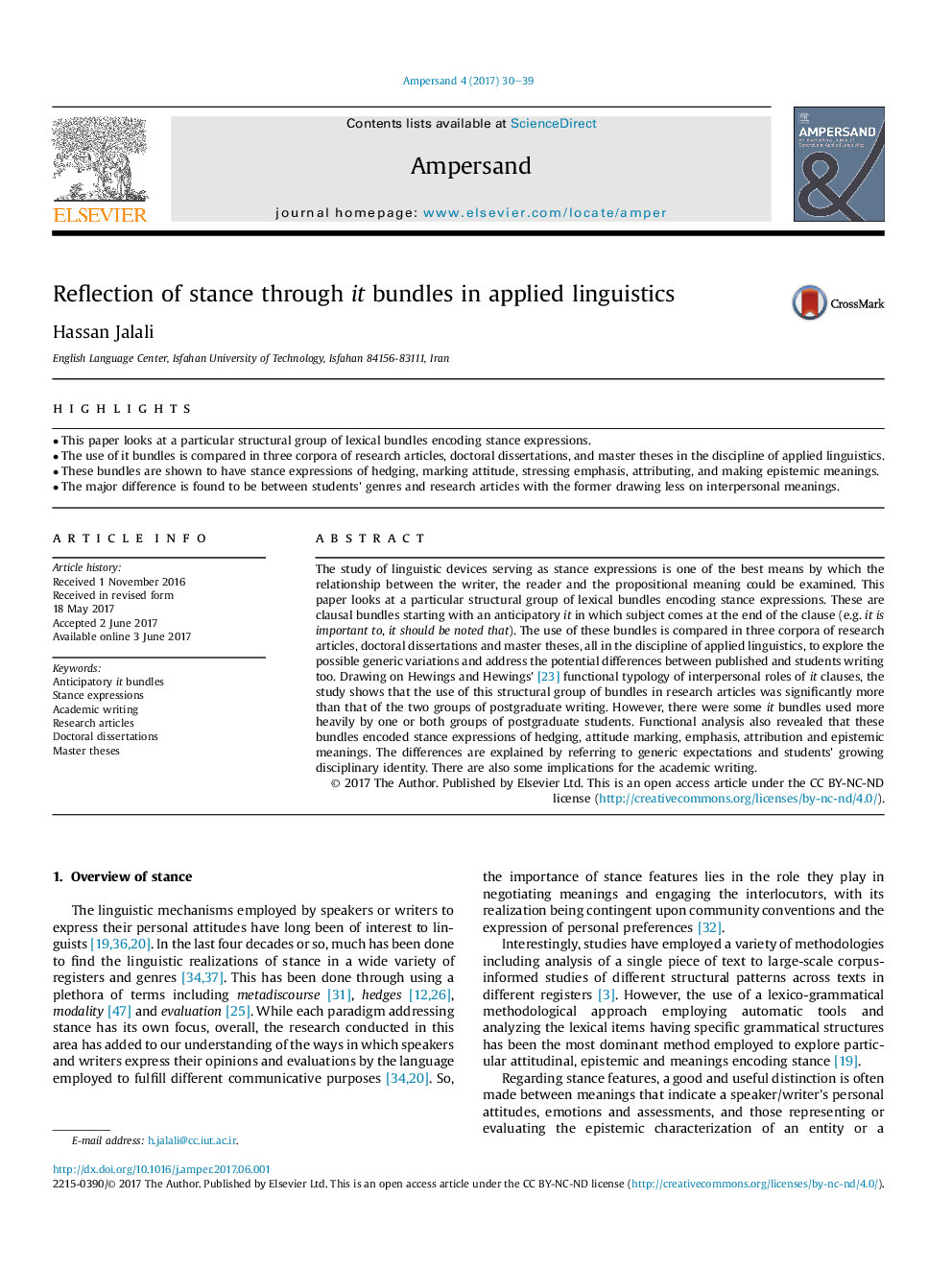| Article ID | Journal | Published Year | Pages | File Type |
|---|---|---|---|---|
| 5123950 | Ampersand | 2017 | 10 Pages |
â¢This paper looks at a particular structural group of lexical bundles encoding stance expressions.â¢The use of it bundles is compared in three corpora of research articles, doctoral dissertations, and master theses in the discipline of applied linguistics.â¢These bundles are shown to have stance expressions of hedging, marking attitude, stressing emphasis, attributing, and making epistemic meanings.â¢The major difference is found to be between students' genres and research articles with the former drawing less on interpersonal meanings.
The study of linguistic devices serving as stance expressions is one of the best means by which the relationship between the writer, the reader and the propositional meaning could be examined. This paper looks at a particular structural group of lexical bundles encoding stance expressions. These are clausal bundles starting with an anticipatory it in which subject comes at the end of the clause (e.g. it is important to, it should be noted that). The use of these bundles is compared in three corpora of research articles, doctoral dissertations and master theses, all in the discipline of applied linguistics, to explore the possible generic variations and address the potential differences between published and students writing too. Drawing on Hewings and Hewings' [23] functional typology of interpersonal roles of it clauses, the study shows that the use of this structural group of bundles in research articles was significantly more than that of the two groups of postgraduate writing. However, there were some it bundles used more heavily by one or both groups of postgraduate students. Functional analysis also revealed that these bundles encoded stance expressions of hedging, attitude marking, emphasis, attribution and epistemic meanings. The differences are explained by referring to generic expectations and students' growing disciplinary identity. There are also some implications for the academic writing.
